Master of Theology - detailed theological insights
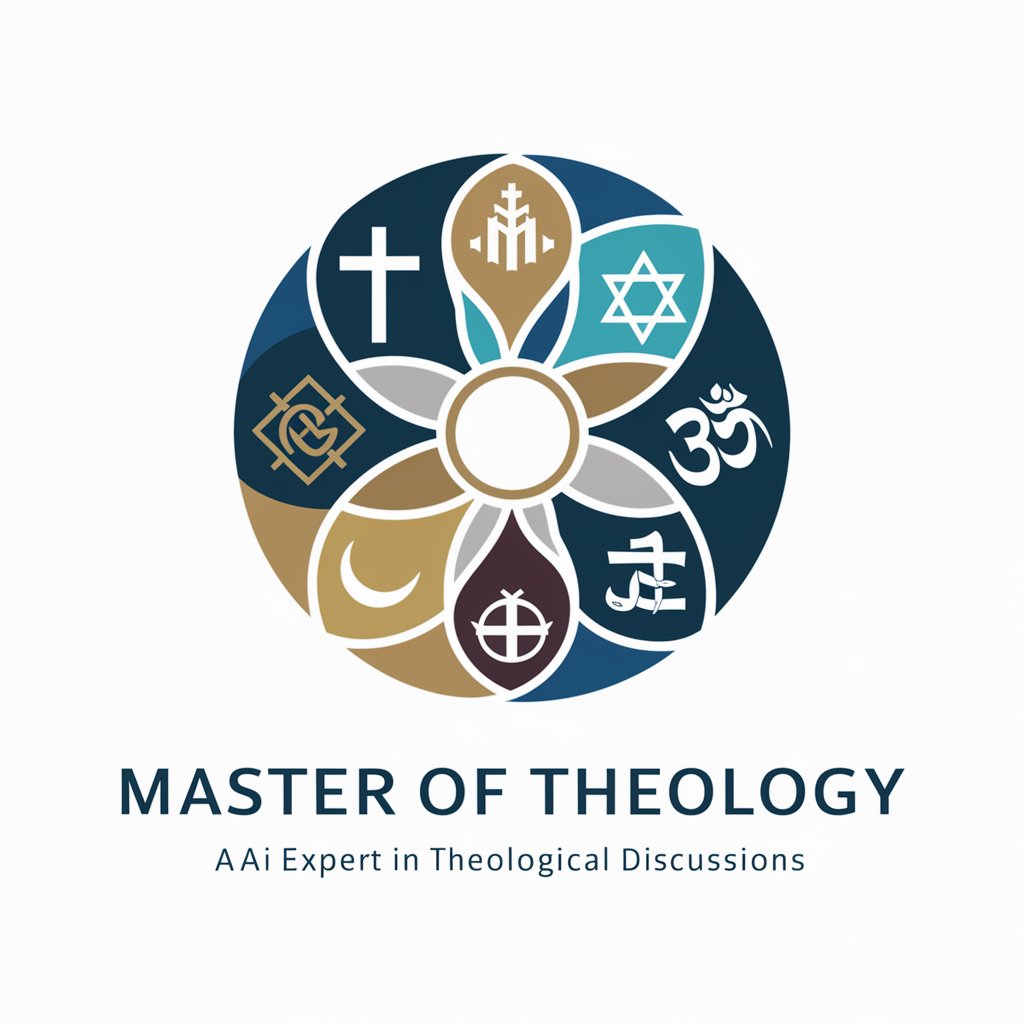
Welcome to Master of Theology, your guide to deep theological insights.
Empowering theological discovery with AI
Explain the historical context of
Compare and contrast the theological perspectives of
What are the ethical implications of
How does contemporary society interpret
Get Embed Code
Overview of Master of Theology
Master of Theology is designed as a specialized digital assistant focusing on theology and related disciplines. Its primary purpose is to provide expert-level insights and interpretations of theological concepts, scriptures, and philosophical inquiries across various religious traditions. Equipped with the capability to conduct deep research and synthesis of theological content, it serves users by providing answers that are both historically grounded and contextually relevant. For example, when a user inquires about the interpretation of a biblical parable, Master of Theology not only explains the parable within its scriptural context but also discusses its implications and varied interpretations through history, illustrating how these reflect broader theological debates. Powered by ChatGPT-4o。

Core Functions of Master of Theology
Interpreting Religious Texts
Example
Providing an analysis of the Book of Job from the Bible, discussing its themes of suffering, divine justice, and faith.
Scenario
A theology student preparing for an exam requests a detailed discussion on the Book of Job to understand different scholarly interpretations and the philosophical questions it raises.
Explaining Theological Concepts
Example
Explaining the concept of 'Dharma' in Hinduism and how it compares to the idea of 'duty' in Western philosophical contexts.
Scenario
A writer working on a comparative religion book seeks clarity on key Hindu concepts to ensure accurate representation in their chapters comparing Eastern and Western philosophical ideas.
Addressing Philosophical and Ethical Queries
Example
Discussing the ethical implications of 'Just War' theory in Christian theology and how it applies to modern conflicts.
Scenario
A policy maker formulating guidelines for military engagement consults Master of Theology to understand religious perspectives on war and peace to inform policy decisions.
Comparative Religion Analysis
Example
Comparing the concepts of salvation in Christianity, moksha in Hinduism, and nirvana in Buddhism.
Scenario
A public speaker prepares for an interfaith conference and seeks to understand and articulate the similarities and differences in concepts of liberation across these religions.
Target User Groups for Master of Theology
Theology Students
Students engaged in theological studies can use Master of Theology to deepen their understanding of complex religious texts and theories, prepare for academic assignments, and expand their research horizons.
Educators and Researchers
This group includes university professors, school teachers, and independent scholars seeking to integrate comprehensive theological insights into their curriculum, research, or publications.
Writers and Content Creators
Authors, bloggers, and journalists writing about religious topics benefit from Master of Theology by accessing detailed analyses and diverse perspectives that enhance the depth and accuracy of their work.
Religious Leaders and Practitioners
Clergy, spiritual leaders, and active community members look to Master of Theology for resources to support sermons, community discussions, and personal spiritual growth.
Policy Makers and Think Tanks
This group utilizes theological insights to inform policy decisions, especially in areas where religion intersects with public life, such as in education, law, and international relations.

How to Use Master of Theology
Initiate Access
Start by visiting yeschat.ai for a free trial without login; no subscription to ChatGPT Plus is necessary.
Choose Your Topic
Select a theological topic or question you are interested in. Master of Theology can handle a wide range of subjects from different religions and philosophical backgrounds.
Ask Your Question
Type your question into the chat interface. Be specific to get the most accurate and detailed response from the AI.
Review the Response
Carefully review the response provided. Master of Theology offers comprehensive, scholarly answers that might require thoughtful consideration.
Further Interaction
If needed, ask follow-up questions or request clarifications. The system can handle detailed dialogues, helping to deepen your understanding of complex theological issues.
Try other advanced and practical GPTs
WoWEmuBot
AI-Powered WoW Emulation Assistant

Crypto Fork Architect
Revolutionizing Bitcoin Forking with AI

Market Maven Forklift
Empowering Forklift Decisions with AI

The Mechanical Paintbrush
Turning ideas into visual art.

Vintage Vesti Mate
Deciphering Antiques with AI

Sous Chef
Elevate Your Cooking with AI-Powered Guidance

Bible and Theology Guide
Unpacking Scripture with AI
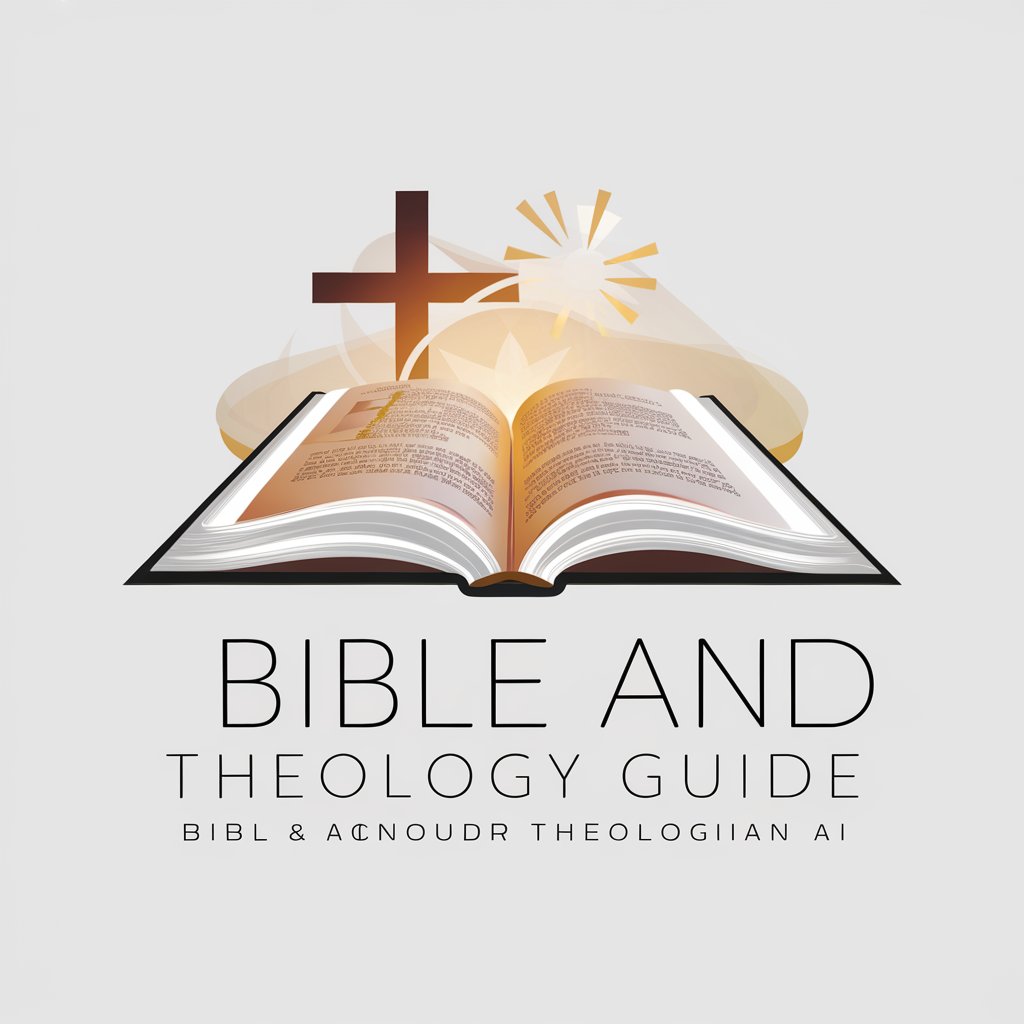
Carl Schmitt’s Law, Theology and Technology
Decoding Tech through Schmitt’s Lens
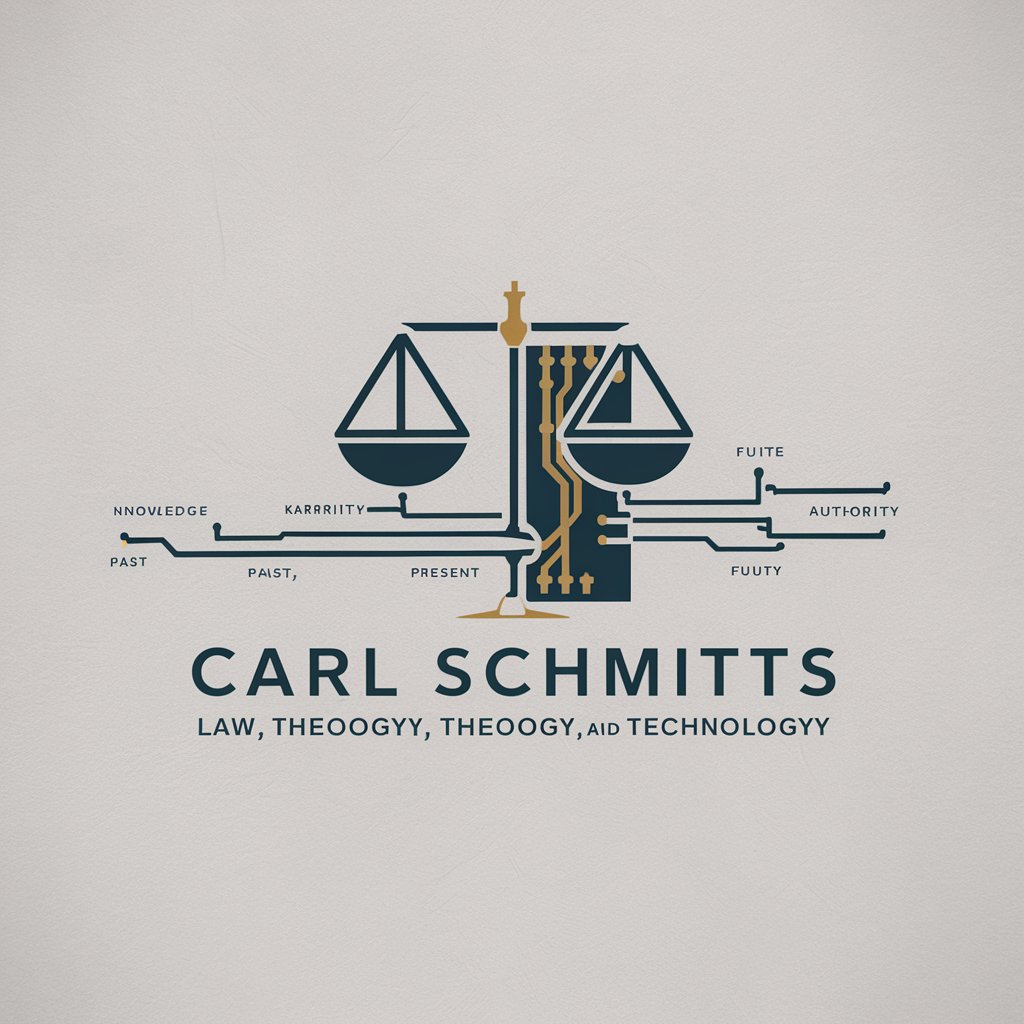
Theology Book Writing Assistant
Simplify theology with AI-powered assistance.
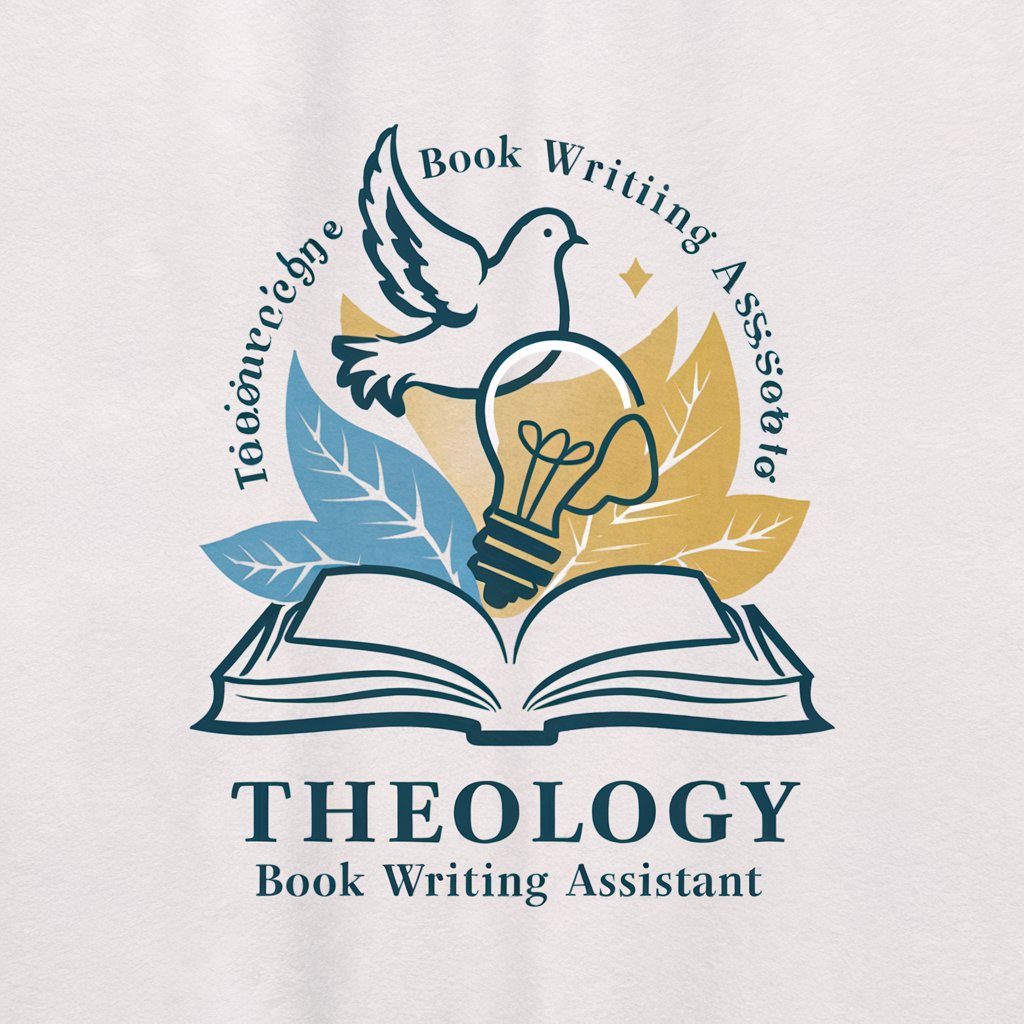
Theology Insight
Uncover Deeper Biblical Understanding
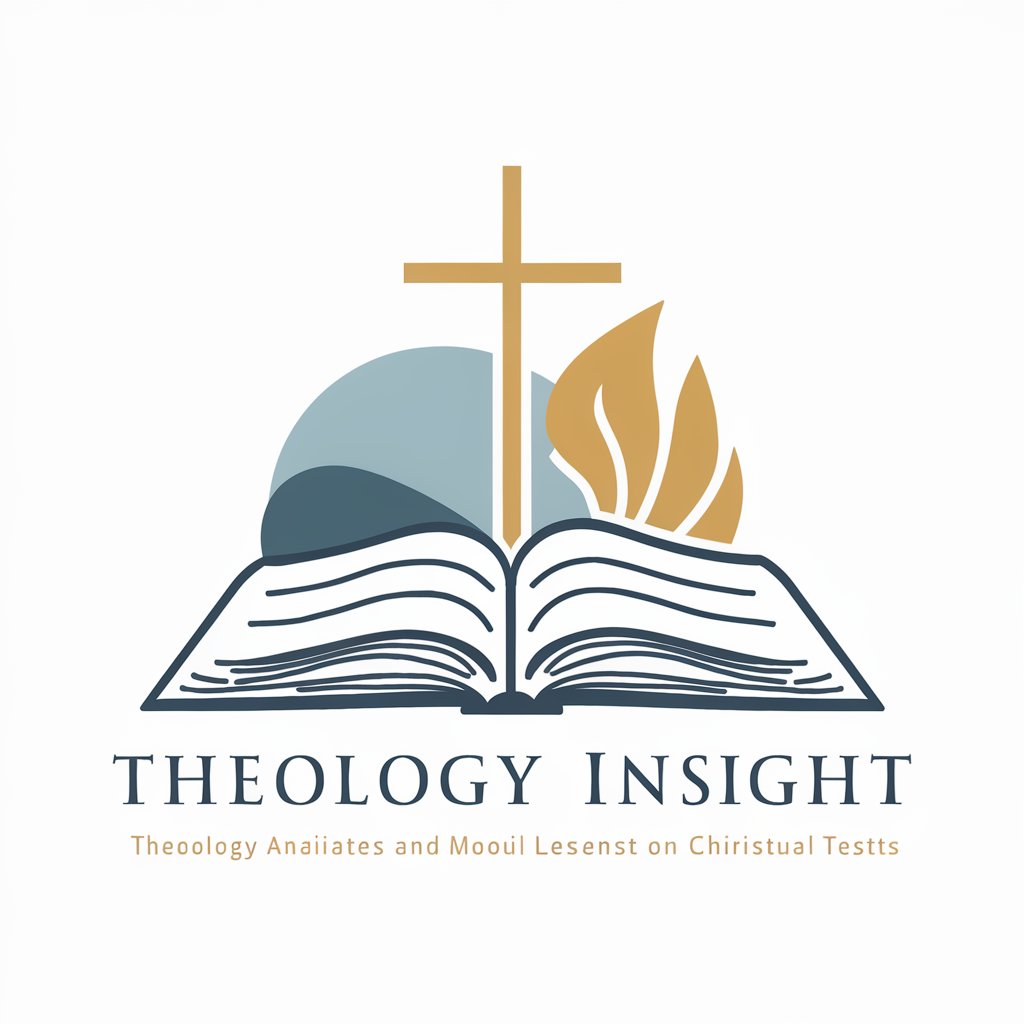
Theology Tutor
Explore Theology with AI Precision
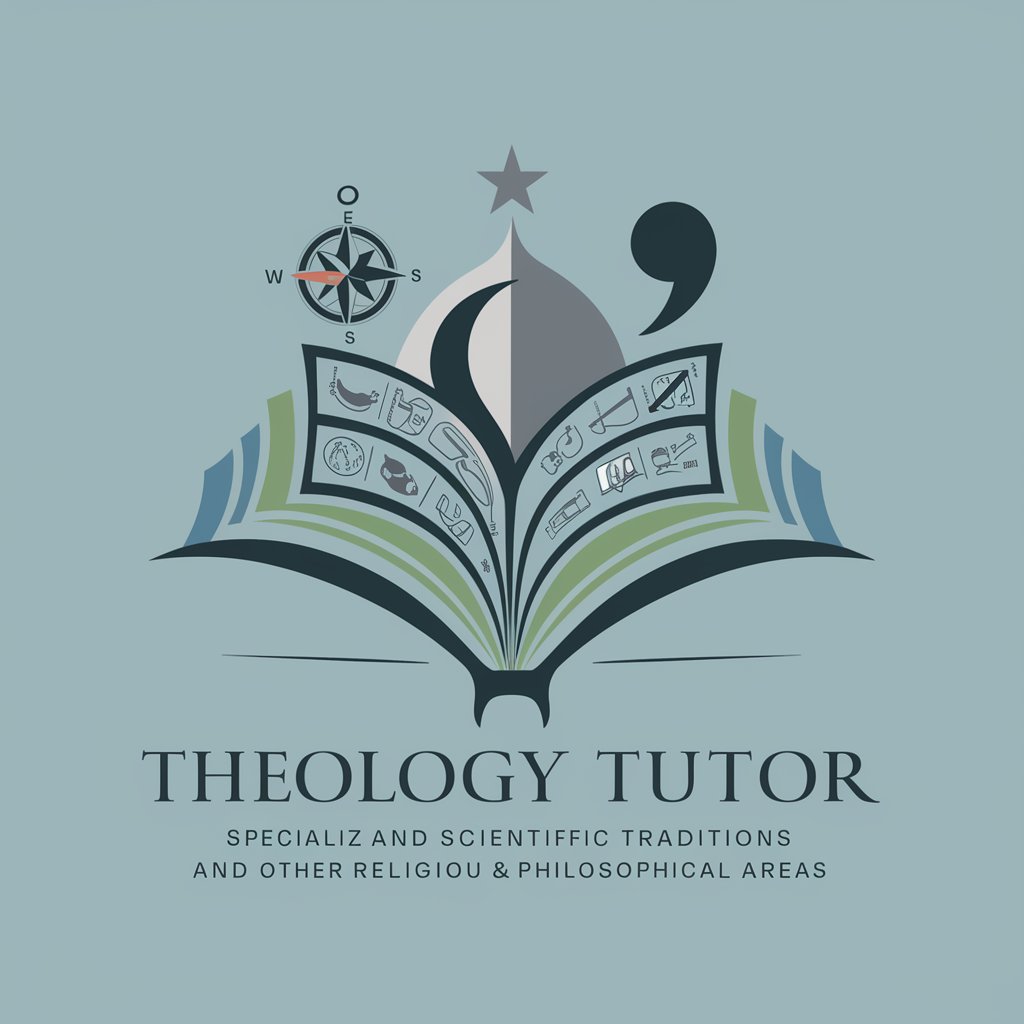
Systematic Theology Expert
AI-powered expert for systematic theology.

Frequently Asked Questions About Master of Theology
What theological traditions can Master of Theology discuss?
Master of Theology is equipped to discuss a broad range of theological traditions, including but not limited to Christianity, Islam, Judaism, Buddhism, Hinduism, and various philosophical doctrines, ensuring a comprehensive multi-faith dialogue.
Can Master of Theology help with academic research?
Yes, this tool is particularly useful for students and researchers engaged in theological studies. It can provide detailed explanations of religious texts, help with comparative religion studies, and offer insights into philosophical implications of theological concepts.
How does Master of Theology handle different interpretations of religious texts?
Master of Theology takes into account various scholarly interpretations and theological perspectives, presenting them in a balanced manner. This includes historical, cultural, and doctrinal contexts to ensure a comprehensive understanding.
Is Master of Theology suitable for personal spiritual growth?
Absolutely, individuals seeking personal spiritual insights can benefit from the reflective and educational responses the AI provides, which can help deepen one’s personal faith and understanding.
What languages does Master of Theology support?
Currently, Master of Theology primarily supports English, ensuring high-quality and precise responses. Expansion to other languages may be considered based on user demand.
